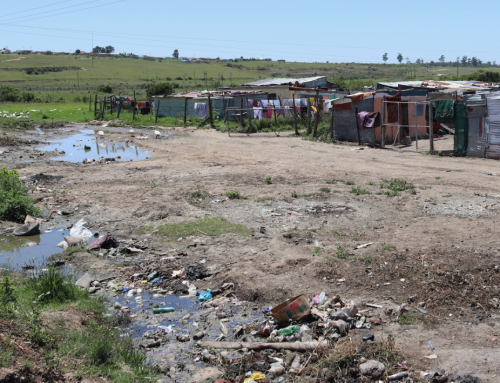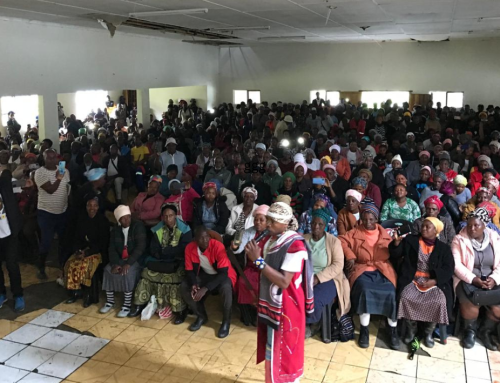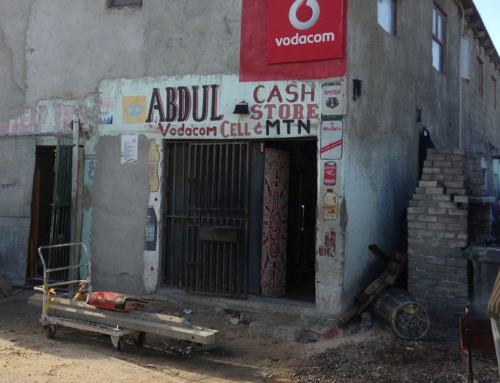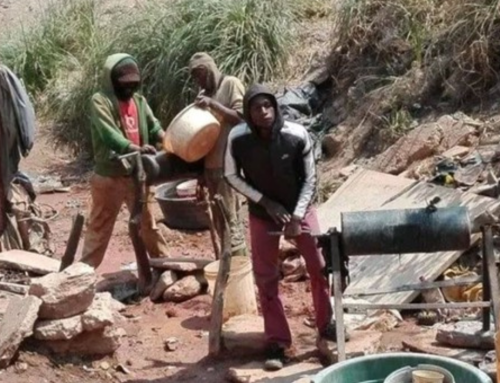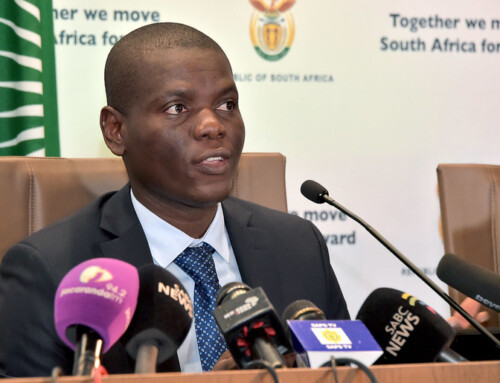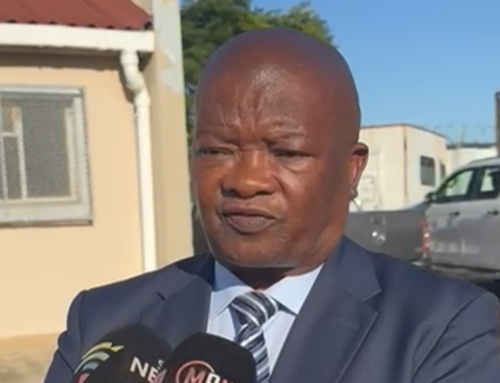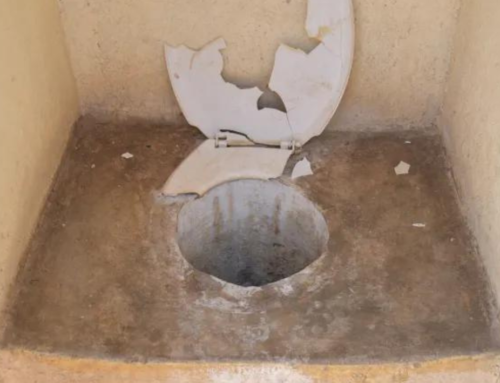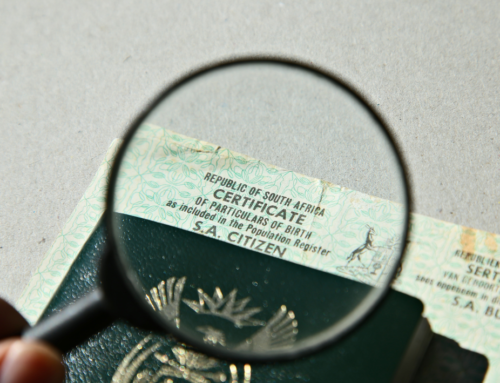 Mr Mkhuleko Hlengwa, MP
Mr Mkhuleko Hlengwa, MP
Chairperson of the Standing Committee on Public Accounts
Private Bag X115,
Pretoria
0001
Honourable Hlengwa
Allegations of maladministration, mismanagement and possible deep-rooted corruption at the Development Bank of Southern Africa and the victimisation of board members
1. I wish to raise a number of issues with the Standing Committee on Public Accounts (Scopa), which I believe merits its attention in seeking a thorough understanding of the goings-on at the Development Bank of Southern Africa (DBSA) as there are clear signs that all is not well.
2. Where the DBSA is concerned, it appears as if the ruling party’s deployees, in cabinet and on the DBSA board, are making-and-breaking as they please despite President Ramaphosa’s promises to root out corruption. The matters I raise with Scopa have been broached with them, but they do not seem to heed the warning signs of corruption at the DBSA and, least of all, care to address them.
3. Mr Enoch Godongwana, the DBSA’s non-executive chairperson, is a Politically Exposed Person (PEP) and has managed to turn the DBSA into his personal spaza shop. By virtue of his PEP-status, he should in the first instance never have been asked to head a government financial intuition. If South Africa is really serious about having cleanly run government institutions, we must ask how he got there. Mr Godongwana should rather go back to Luthuli House where corporate governance policy is a foreign concept.
4. At this stage I withhold much of the finer details, which I have in my possession, pending Scopa’s decision to consider the matter or not. I would be glad to share this information when the time is right.
5. The case of Cranbrook Property Projects (Pty) Ltd
5.1. The entire saga relates to the alleged mismanagement and maladministration of three loans that the DBSA had allegedly extended to three entities: Blue Horison Investments 11 (BH 11), Moeparutsi Properties and Proline Trading 60 (PT 60), all which apparently form part of Cranbrook Property Projects (Cranbrook).
5.2. The total of the outstanding loans allegedly stood at R426 million, including accumulated interest, and there is no evidence of any repayments since disbursing the loans in the mid-2000s, aside from an alleged partial repayment on the BH 11 loan.
5.3. In the end, the DBSA allegedly approved the write-back of hundreds of millions of Rands in interest according to the in duplum-rule, but also wrote off a whopping R259 million. I highlight some of the salient allegations to illustrate and motivate why Scopa should investigate the DBSA:
5.4. Moeparutsi Properties (Pty) Ltd
• In 2007, the DBSA loaned R10 million to one Shokeng Mahlake and one Mashupye Matlala to acquire 17% of the shares in Cranbrook as part of a BEE deal.
• There have been no repayments of the loan after 2012 and no letters of demand have ever been issued for the outstanding obligation.
• No such an entity, “Moeparutsi Properties (Pty) Ltd”, has ever been registered with the Companies and Intellectual Property Commission.
• The original loan agreements were very poorly drafted – missing registration numbers and identity numbers for the individual sureties.
• The DBSA does not have any contact or financial information on the borrower or any of the sureties on record.
• The loan was absurdly enough, directly deposited into Cranbrook’s account.
• The board recently wrote off this debt, because it cannot locate the borrowers. I was however able to locate the identity numbers of the borrowers, which means the DBSA’s Business Support and Recovery Unit (BSRU) did not exhaust all avenues in locating them (see paragraph 5.11).
5.5. Blue Horison Investments 11 (Pty) Ltd
• In 2007, the DBSA loaned R124 million to BH 11 to develop the Ledibeng Eco Estate in Lephalale, Limpopo. Sixty-five percent of the loan was repaid, but this is unsubstantiated.
• BH 11 was placed under liquidation in 2017 and the liquidator’s attorney had apparently hinted, to the DBSA, at potential fraudulent transactions and that funds may have been disbursed to the benefit of certain directors and to the detriment of the Cranbrook group and its creditors.
• The BSRU asked the board to agree to a carve-out, in favour of the DBSA, of up to R20 million as suggested by the liquidator’s attorney. This is irregular, as the relevant legislation prescribes a fair distribution of an insolvent company’s assets for the benefit of the general body of creditors.
• There was also a request to write back the interest of R11,6 million which the BSRU argued exceeded the amount which may be claimed in terms of in duplum and to cease any further interest charges.
5.6. Proline Trading 60 (Pty) Ltd
• In 2008, the DBSA approved a further loan of R125 million for PT 60 as funding required to install municipal services for the Spekboom River Estate in Burgersfort, Limpopo, which Cranbrook would later develop.
• The granting of facilities to PT 60 was as part of a ‘greater restructuring of the Cranbrook loans’ which was agreed to at that time. This seems to be and odd arrangement for the DBSA to have entertained.
• The DBSA never issued any letters of breach and/or letters of demand to the debtor.
• PT 60 continues to be in default with its obligations and the total debt due is over R311 million, which reportedly constitutes the total unpaid debt and the accrued interest.
• Although the loan was secured by a mortgage bond, the value of the property is currently worth R61.8 million at forced sale value according to the BSRU.
• The BSRU requested that legal action against the individual sureties be delayed until the underlying secured properties in PT 60 have been disposed of in order to ensure the directors’ cooperation with the proposed legal process; as well as the write-back of interest which has exceeded the amount which may be claimed in terms of in duplum and to cease any further interest charges in light of in duplum.
5.7. There is a considered legal view, in my possession, which states that the BSRU did not apply the ‘in duplum-rule’ correctly in the BH11 and PT 60 deals and it begs the question, in how many other deals has this been the case.
However, this is all moot, as I understand it, because the Prescription Act 68 of 1969 provides that after three years from the date when a loan became payable, a contractual and delictual debt extinguishes. This means that because the DBSA had not taken action to recover the debt, for three years from when the date the debt was due, its legal rights to proceed for the recovery was extinguished.
5.8. It seems as if the BSRU has also for years been negligent in its monitoring of this bad debt and it wanted to cause the Audit, Risk and Finance Committee to make decisions that would in effect excuse this negligence. There has also allegedly been a conspicuous material non-disclosure by the BSRU in its reporting memo to the board and that false assurances were also allegedly given that entities on the “non-performing list” were in fact being monitored.
5.9. There are clear signs that this entire transaction might constitute “BEE-fronting” and that the DBSA has, whether it be wittingly or unwittingly, been a party to that and now that the BSRU has woken up to the bad debt, the board is seemingly being asked to depart from its fiduciary duties and to implement a total write-off on a transaction which apparently amounts to fraud and theft.
5.10. Lastly, the details above show a cacophony of alleged errors, maladministration and mismanagement e.g. apparently decisions were made without honouring internal systems, poorly written contracts, lack of identity and entity numbers, no follow-up was done (for years) when the borrowers neglected payments. The problem here is that, where there is smoke there is fire, and this might not be an isolated incident of shoddy administration.
5.11. A simple desk-top search produced a prospectus of the entire Cranbrook Group containing information that largely contradicts the information that the BSRU presented to the board, it is therefore not clear who is apparently telling which lies to whom. Ironically the identity numbers of Shokeng Mahlake and Mashupye Matlala are contained therein and if the DBSA was serious about recovering its lost money, it could have traced these two gentlemen.
6. Victimisation of certain board members and irregular reformation of the board
6.1. Earlier this year, it appears that the chairperson of the board, Mr Enoch Godongwana, unilaterally wrote to the Finance Minister about two vacancies and the reappointment of eight executive-directors, all of whom had been eligible for reappointment.
The board had no knowledge of his actions and there allegedly were board members who were unhappy with the entire process and the chairperson’s actions on the board’s behalf without its knowledge.
6.2. What happened simultaneously was that a now former board member allegedly dared to question the Cranbrook and other matters, and then had allegedly been the target of malicious actions by the chairperson and the senior DBSA management who, as far as the United Democratic Movement is concerned, has shown their true colours (see paragraph 7).
6.3. The seemingly petty actions of the chairperson include his alleged instruction to the DBSA officials that this former board member’s fees be withheld for two months. This allegedly happened after the DBSA management out of the blue recalled all the electronic devices it issued to board members, and some executive staff, under the pretext of a forensic investigation to establish leaks. But it could rather seem like an effort to tamper with ICT to cover acts of corruption, by the very same people who were being questioned by this board member.
6.4. To give further context to the sophistication of the alleged manipulation, it is alleged that when the Cranbrook matter arose at board level, the company secretary asked for outside legal opinions on the situation (as described in Paragraph 5). Those legal opinions apparently clearly advised that the entire Cranbrook matter had to be investigated forensically. That advice was allegedly wilfully ignored and the DBSA management’s scramble to have board members’ access to the DBSA’s IT systems revoked and electronic devices recalled smack of wrong-doing and a concerted cover-up effort. The former board member under discussion’s refusal to return the tablet was therefore for a good reason and ultimately correct.
6.5. Subsequent to all these shenanigans, this person’s board membership was ended through what seems to be a concerted effort of the chairperson to rid the DBSA of a board member who would not toe the line of condoning alleged maladministration and corruption. Even though an “independent executive search firm” was apparently appointed, albeit under allegedly irregular conditions, Finance Minister Mboweni had still decreed that the appointment process should be led by Mr Godongwana, whom I believe had compromised himself with a clear bias towards the aforementioned former board member.
6.6. I understand that Minister Mboweni, was made aware that the appointment of the “independent executive search firm” had allegedly unilaterally been done by the chairperson in contravention of the DBSA’s internal processes and without the knowledge of the board and without the involvement of the Board Human Resources and Nominations Committee. As far as I am aware, the minister did not act, which is evidenced by the continuation of processes that led to the recent announcement of the new board, which of course excluded the board members who refused to toe the chairperson’s line.
6.7. Incidentally, the DBSA board of directors is constituted in terms of the DBSA Act 13 of 1997 , yet, in 23 years, the regulations in terms of which the Minister of Finance must make these appointments have apparently never been promulgated. This must surely be addressed.
6.8. It was unsettling to hear that the troika of the chairperson, the chief executive officer, Mr Patrick Dlamini, and the company secretary, Ms Bathobile Sowazi, were ruling the roost at the DBSA to the extent that there are allegations that some board members were being offered favours and that the some members, were wilfully being frustrated in fulfilling their duties. The fact that there are allegations that the company secretary has been tampering with board meeting minutes is disconcerting.
6.9. There is clearly something untoward going on at the DBSA and the chairperson and the senior management are seemingly hell-bent on preventing the board from fulfilling its fiduciary duties and expects it to condone unlawful conduct and negligence, as well as relaxing and/or uplifting and/or waiving the very safeguards that have been put in place by the very same board to protect the DBSA’s interests.
7. My own experience with the DBSA
7.1. In June 2020, I wrote to the President of the Republic , exposing allegations of looting of state resources using the DBSA by some of the same people involved in the Public Investment Corporation (PIC) saga.
7.2. The DBSA had funded a company called Poseidon, which allegedly has links to Harith General Partners, to the tune of R50 million to conduct feasibility studies, for some kind of water project/s, in South Africa and other Southern African countries. At that time, another R300 million was apparently still to be disbursed for the implementation of Poseidon’s project.
7.3. Harith General partners and its management had been named in the judicial commission of inquiry into allegations of impropriety at the PIC’s report (Paragraph 62 on page 434) where it said that: “Harith’s conduct was driven by financial reward to its employees and management, and not by returns to the GEPF. In essence, the PIC initiative, created in keeping with government vision and PIC funding was ‘privatised’ such that those PIC employees and office bearers originally appointed to establish the various Funds and companies reaped rich rewards.”
7.4. I have raised the Poseidon matter, on 23 June 2020 and 13 July 2020, and with the DBSA and have been stonewalled by the DBSA’s management as they, for instance, even refused to consider my Public Access to Information Act application to get information on the Poseidon deal, using petty technicalities.
7.5. I also in June addressed with the President, the matter of Ms Irene Charnley and her inclusion on the PIC’s interim board, whose term has since been extended. Her company, Smile Telecoms Limited, received ±R1,7 billion (in today’s terms) from the PIC. I had written to Finance Minister Tito Mboweni about this matter on 3 June 2020, but receive no answer. Since writing that letter, I hear that the PIC has written-off the R1,7 billion.
Moreover, Ms Charnley received a USD 20 million DBSA loan, which she has allegedly failed to pay back. The Al Nahla Group, with whom she is partnered, is a Saudi Arabia-based company , which might mean that the PIC and DBSA’s monies were channelled out of South Africa on purpose.
8. In both my own and allegedly the aforementioned board members’ experience, Finance Minister Mboweni has been inattentive. Numerous correspondence have gone unanswered, never mind action being taken to get to the roots of these very serious problems at the DBSA.
9. Request to Scopa
9.1. Given the President’s and the Finance Minister’s inattention to the various matters raised, as described above, have they perchance referred these any of them to Scopa? If not, I believe it would behove Scopa to look into:
• The entire circumstances of the loans provided to Cranbrook and Poseidon, but in particular the DBSA’s so-called “watch-list” of investments that are in distress and its register of loans and the repayment statuses.
• The DBSA’s administration i.e. the basics of record-keeping, having proper contracts in place, issuing timeous letters of demand for loans, etc.
• The implication that the DBSA chairperson, board and/or senior management’s overlooking and/or covering-up of maladministration, mismanagement and possibly massive corruption.
• The allegations of the DBSA chairperson and senior management’s victimisation of the former board member whose only crime had been to fulfil the fiduciary duties expected of any board member.
• Urgently effecting the payment of the board fees for August and September that are due to the former board member that had been withheld for specious reasons.
• The Minister of Finance be made to explain his lack of action in the matter of the complaints raised by the aforementioned board member and myself.
• The appointment of Ms Charnley, given her track-record, and establishing what value she adds to the PIC board.
• The ease with which international entities can access South African funds, as funds are leaving our shores, instead of international investment being made here.
10. I do however strongly feel that Scopa would be well advised to conduct a preliminary inquiry to determine whether there is no need to conduct a judicial commission of inquiry into the matters of the DBSA.
11. I look forward to your and Scopa’s favourable consideration of this submission and will provide the committee with the detailed information upon request. Please feel free to engage me on this issue at any time.
Yours sincerely
Mr Bantu Holomisa, MP
President of the United Democratic Movement




